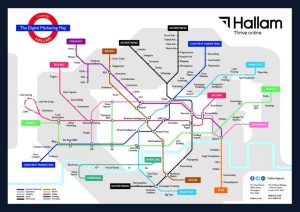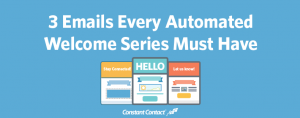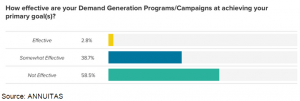IPG’s Acxiom Develops Strategy To Protect IP From ChatGPT

Acxiom CEO Chad Engelgau, who worked at Dell for more than a decade, sees generative artificial intelligence (AI) technology as transformative for advertising. He says the underlying technology must be understood to create benefits for marketers and brands, as well as learn how to block intellectual property on websites.
“We are not building our own ChatGPT technology, but some of the fundamentals like the cost to create these chatbots that will influence its future and how companies leverage and monetize it due to the necessary processing power,” he says.
Chatbots on brand websites could provide the company’s information first and then pull in other information across the web to reference additional information such as product reviews and feedback — similar to what consumers might find on a search engine.
Acxiom helps companies manage first-party data for customer acquisitions, cross-selling and upselling. This data is used to support direct marketing such as email, direct mail and fuels interactions on websites.
“The same information can be used for chatbots,” he says, adding that it would become the underlying seed for an expanded business model and partnerships.
When Acxiom analyzes how to support its own clients, Engelgau says, “we have used the technology to gain perspectives like ‘how would you write a press release to support national privacy laws, and what are the five main points you would use.’”
The ChatGPT results then are compared with the form of releases that Acxiom has used for years. Searches for best practices are also helpful.
The cost, however, to run a chatbot is significant because of the required computing power. For each search query Google triggers, its AI chatbot Bard, UBS’ estimates Alphabet will incur $0.003 to $0.028 in incremental costs on top of its base search cost of ~$0.003 per query.
Morgan Stanley estimates that powering Google Search with AI similar to a large language model like ChatGPT could cost about $1.2 billion for every 10% of queries, according to Reuters.
Engelgau says marketers need to understand how machine learning and AI tools work to accomplish lower-level marketing tasks such as drafting written communications and research. The current technology still requires human intervention, he said, to meet standards clients expect and to avoid plagiarism.
“You can argue that chatbots are the world’s best plagiarist,” he said. “They lack creativity, as they simply copy the existing work products and content.”
During this process, Acxiom learned how to prevent technology like chatbots from scrapping website for thought-leadership intellectual property to support someone else’s business mode, he says.
“There are novel insights, like a chatbot can help to write computer code,” adds Engelgau.
Google, Microsoft, Baidu and other companies building chatbots rely on data gathered across the internet to train their respective models, but some believe it’s time to block the technology from using website content for free.
Himanshu Sharma, founder at GA/GTM Consulting & Web Analytics Training, discusses this in a recent LinkedIn post.
“To disallow plugins to access your site you can add the ChatGPT-User to your site’s robots.txt: User-agent: ChatGPT-User Disallow: / ,“ he wrote, explaining that “ChatGPT-User is only used by plugins in ChatGPT. This User-agent will only be used to take direct action on behalf of ChatGPT users and is not used for crawling the web.”
Sharma believes chatbots will force additional gated and paid content in the future as more and more AI tools begin to plagiarize content.
(16)






